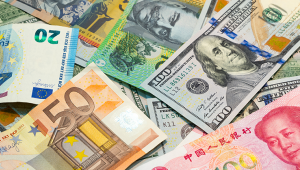The charity’s report, Public Good or Private Wealth published today as world leaders in business and politics meet in Davos, highlighted that the world’s 26 richest people own as many assets as the poorest half of the planet’s population.
It urged governments to stop privatising public services, as those delivered by the private sector and funded through public-private partnerships are not a “viable alternative to government delivery of services”.
Privately delivered services can “actually drive up” inequality and drain government revenues, it said.
Oxfam called for countries to invest more in public services, which it said could be “great equalisers”, giving everyone a “fair shot at a decent life”.
“Public services like health and education, as well as child benefits, pensions and other social protection have huge power to reduce inequality,” the report said.
It found that in developing countries doing the most to stop women dying in childbirth, 90% of the health service was publicly provided while just 8% was from the private sector.
“The pursuit of profit means private providers have no incentive to serve those who are unable to pay,” the document said.
To fund public services, governments should tax the wealthiest people more, which could fund children’s education and ensure that no one is “bankrupted by the cost of medical care”, Oxfam said.
Getting the world’s richest to pay just 1% extra tax on their wealth could raise enough money to educate all children out of school, the report suggested.
Oxfam director of campaigns and policy Matthew Spencer said: “Governments should act to ensure that taxes raised from wealth and businesses paying their fair share are used to fund free, good-quality public services that can save and transform people’s lives.”
In the ten years since the financial crisis the number of billionaires has nearly doubled, Oxfam said. The wealth of the world’s richest billionaires increased $900bn in the last year, it added.
This is the equivalent to $2.5bn a day. In comparison, people in extreme poverty live on less than $5.50 a day, according to the report.
The analysis added that the “power of public services” to reduce inequality depends on how well they are funded, how they are delivered and the level of quality.
If public services fail, those who can afford it often opt out and may be uninterested in paying taxes to fund services, Oxfam said.
“Low-quality, underfunded education, health and other public services become the preserve of the poorest people, and social cohesion, trust and solidarity are undermined,” it said.
Oxfam estimates that 3.6 million deaths each year can be attributed to the lack of access to healthcare in low- and middle-income countries.
Additionally, more than 100 million people each year are forced into extreme poverty and 800 million more face severe financial difficulties due to paying for healthcare.
The IMF and the Overseas Development Institute have identified public spending on health, education and social security as key to meeting the UN-backed Sustainable Development Goals.
The report was published ahead of the World Economic Forum this week in Davos, Switzerland, where world leaders and company heads have gathered to discuss global economic development.






